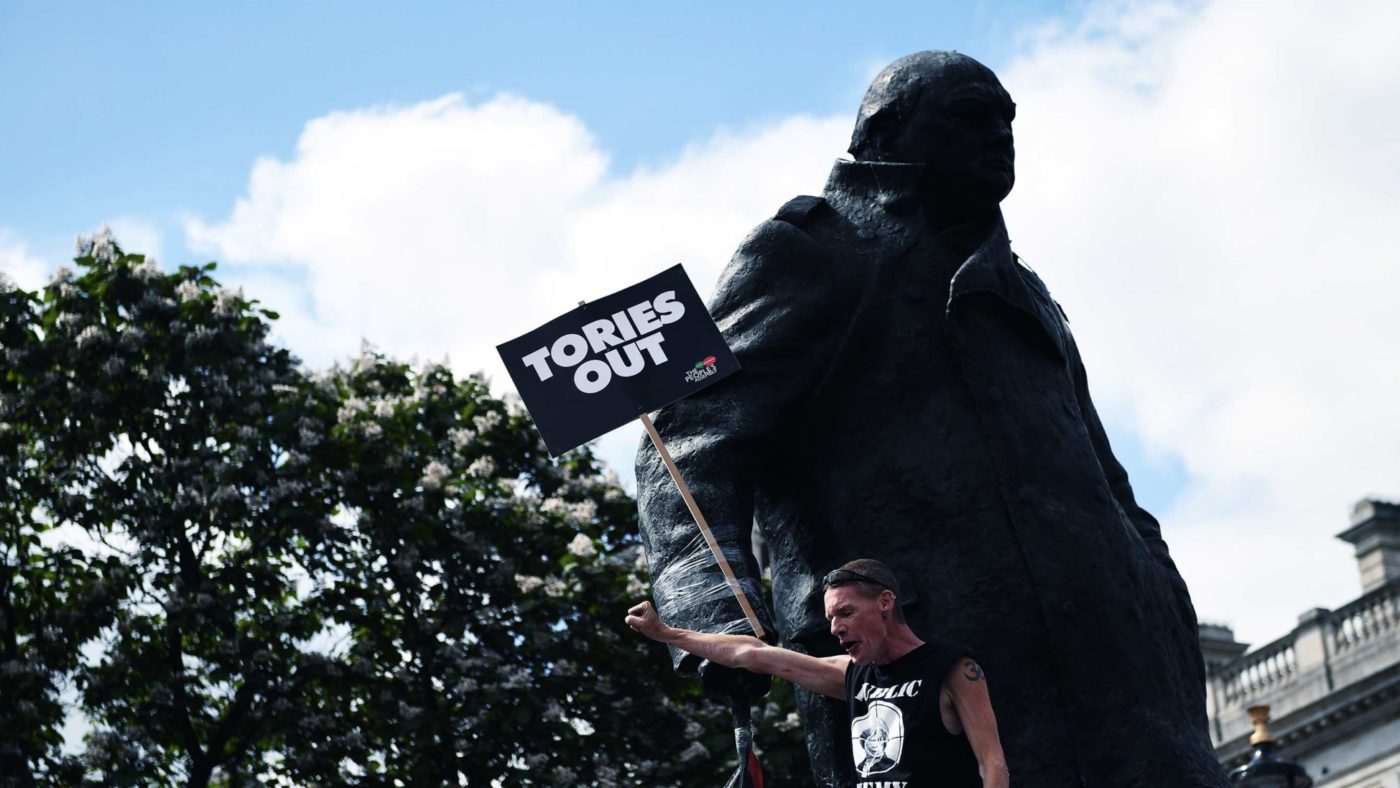For someone who’s been dead for six decades, Winston Churchill has an unerring ability to command political headlines.
This time it’s the Shadow Chancellor, John McDonnell, who described Sir Winston as a “villain” when it came to the treatment of striking miners in the Welsh town of Tonypandy. Unsurprisingly, fury has ensued, with one Conservative MP even demanding an emergency debate in Parliament, which suggests a fairly loose interpretation of the word “emergency”.
McDonnell’s assessment was mild compared to that of Green MSP Ross Greer, who not long ago described Churchill as a “white supremacist mass murderer”. We saw the same tendency in a group of almost parodically right-on students who last year occupied a Commonwealth-themed café to chant “Churchill was a racist”.
This is not the cue for another column weighing up whether Churchill was, in fact, a hero or a villain. As Danny Finkelstein has argued with typical lucidity, you cannot hope to distil the life of a major historical figure into a few pithy soundbites.
But while calling Churchill a villain or a racist is not particularly illuminating in itself, it is instructive about the way certain people, including those in and around the Labour leadership, see the world.
Behind it all lurks a mentality that divides things neatly into black and white, good and bad, without any of the messy nuances involved in flawed, often emotional human decision-making. Gone too is the possibility that people can behave terribly in certain circumstances and well in others. Not exactly a mind-blowing insight, but one that seems lost on a surprising number of people. As the historian Glen O’Hara put it pithily this morning, “a politics that cannot grasp light and shade alike is no politics at all”.
It is particularly galling to hear this kind of criticism from the kind of ardent left-wingers who decry the abominations of Western nations, while turning a blind eye to the crimes of far more malign governments – think not just Venezuela, Cuba and Iran, but even North Korea – or “People’s Korea”, to borrow a phrase used by Jeremy Corbyn’s adviser, Andrew Murray (Speaking of Murray, it bears endless repetition that Corbyn and his clique see fit to employ someone who was until recently a literal card-carrying communist.)
This strange combination of moralising and amorality hinges on casting the US as the world’s uber-villain and those who oppose her as plucky upstarts. So we get Jeremy Corbyn willingly appearing on Iran’s Press TV, his adviser Seumas Milne shilling for Vladimir Putin, and a motley crew of activists and public figures packing out a London hall to hear about how the US is responsible for the humanitarian catastrophe in Venezuela.
That in turn leads to some quite staggering double standards. Where they are happy to excoriate the Evil Tories or reckless bankers, when it comes to a bit of good, old-fashioned mass murder, things get rather more equivocal. Witness Diane Abbott’s claim that “some people will judge that on balance Mao did more good than harm – you can’t say that about the Nazis”. You can’t really say that about Mao either, Diane.
Before he became one of Corbyn’s closest confidants, Milne was a past master at this sort of ethical and intellectual gymnastics. Columns on how the US had 9/11 coming, the “resistance movement” in Iraq, or why Stalin was nowhere near as bad as Hitler epitomise his approach. As does the eye-popping claim that “for all its brutalities and failures, communism in the Soviet Union, eastern Europe and elsewhere delivered rapid industrialisation, mass education, job security and huge advances in social and gender equality”.
The search for handy equivalences is also at the heart of it. This quote from Corbyn when he was first running for Labour leader is a good example of the genre: “There has got to be some serious discussions about de-escalating the military crisis in central Europe. Nato expansion and Russian expansion – one leads to the other, and one reflects the other.”
Not only is it a line straight out of the Soviet diplomat’s handbook, but note the way the way Corbyn elides and equates two very different entities and processes into just two sides of the same coin. The fact Nato expands by signing up new members, while Russia does so by invading its neighbours is apparently neither here nor there. The same capacity for moral relativism also explains how Corbyn ended up hanging out with Islamofascists and Republican terrorists because they share his enthusiasm for berating a common enemy, be it Israel or the British government.
So, if the likes of John McDonnell want to call Winston Churchill a villain or a white supremacist, that’s their prerogative. But so long as many on the left go in to bat for some of history’s greatest tyrants, it’s difficult to take their criticisms all that seriously.
CapX depends on the generosity of its readers. If you value what we do, please consider making a donation.


